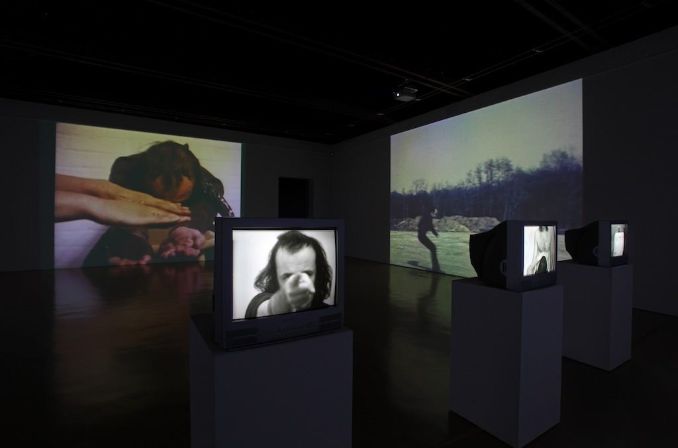Eric Bainbridge (b. 1955, Consett, County Durham, UK) is a British sculptor renowned for his innovative use of found objects and his playful, yet thought-provoking, recontextualization of everyday materials. Drawing from his training at the Royal College of Art in London, where he earned a Master of Fine Art in 1981, Bainbridge’s early work became known for its distinctive incorporation of synthetic fur. This unique material became a hallmark of his practice during the 1980s, but his work soon evolved to embrace a broader range of materials, including plastic figurines, electrical components, and everyday household items. In reimagining these mundane objects, Bainbridge creates sculptures that blur the line between art and craft, inviting viewers to reconsider the meaning and value of mass-produced, consumer-oriented materials.
Bainbridge’s work is characterized by a combination of wit, irony, and cultural commentary. His assemblages, often constructed from inexpensive, discarded, or reimagined objects, evoke a playful tension between high art and popular culture. While his pieces are often humorous in their juxtaposition of materials, they also contain deeper reflections on identity, consumerism, and the way we assign meaning to objects. Whether transforming banal, utilitarian items into surreal, artful constructions or subtly referencing Modernist traditions, Bainbridge invites a reconsideration of the place of the everyday within the sphere of contemporary art.
In the tradition of Eric Bainbridge’s practice—marked by his appropriation of vernacular forms and industrial materials to recontextualize sculptural language—Perfect Modern explores the use of contemporary digital technologies to fabricate images that retain the surface affect and visual imperfection traditionally associated with analog processes. This gesture echoes Bainbridge’s subversive engagement with materiality, where the synthetic mimics the familiar, and mass-produced textures are reimagined as sites of critical inquiry.
Here, technology does not serve to enhance clarity or resolution in the conventional digital sense; rather, it is mobilized to conjure the semblance of a past medium, engaging in what might be called a retroactive aesthetic simulation. The resulting image inhabits a liminal space—both technologically advanced and affectively retrograde—complicating binaries of authenticity and fabrication, of analog warmth and digital coldness. This approach continues Bainbridge’s legacy of questioning the boundaries between high and low culture, while extending it into the realm of contemporary image-making, where the analog is no longer a medium but a mood, algorithmically constructed.
Over the course of his career, Bainbridge has exhibited widely, both in solo and group exhibitions, in venues around the world. His solo shows include PLUCKPLUCK at Workplace, London (2023), Sleight Objects in Nottingham (2024), and Eric Bainbridge: Sculpture at Space Studios, London (2016). He has participated in major international group exhibitions such as the Venice Biennale (1986 and 1990), Modern British Sculpture at the Royal Academy of Arts, London (2011), and Material Culture at the Hayward Gallery, London (1989). His work is held in numerous prestigious collections, including Tate, the Stedelijk Museum, Amsterdam, and the Arts Council of England.
In addition to his artistic practice, Bainbridge has made significant contributions to the academic world. He served as a Henry Moore Fellow at the Slade School of Fine Art and has been a professor at the University of Sunderland. Throughout his career, Bainbridge has received recognition for his achievements, including the Paul Hamlyn Foundation Prize for Sculpture in 1996, and continues to influence both the academic and artistic spheres. His work remains a powerful commentary on contemporary life, seamlessly merging the mundane and the extraordinary in a way that challenges and engages his audience.
Perfect Modern is commissioned and curated by Keith Whittle, in collaboration with the NGCA, with support from Arts Council North East and Sunderland ARC.


















